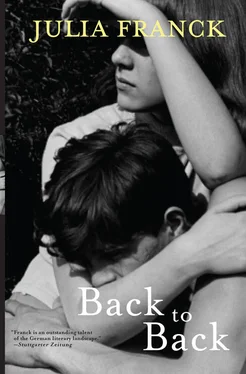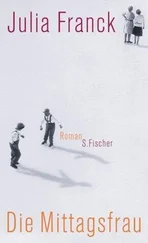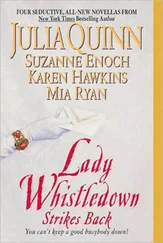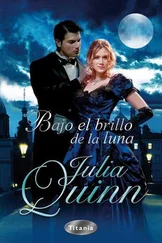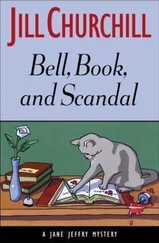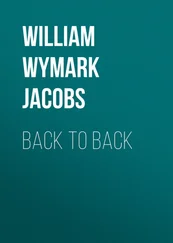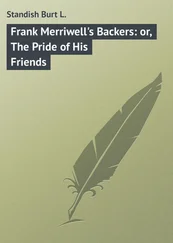Julia Franck - Back to Back
Здесь есть возможность читать онлайн «Julia Franck - Back to Back» весь текст электронной книги совершенно бесплатно (целиком полную версию без сокращений). В некоторых случаях можно слушать аудио, скачать через торрент в формате fb2 и присутствует краткое содержание. Год выпуска: 2013, Издательство: Grove Press, Жанр: Современная проза, на английском языке. Описание произведения, (предисловие) а так же отзывы посетителей доступны на портале библиотеки ЛибКат.
- Название:Back to Back
- Автор:
- Издательство:Grove Press
- Жанр:
- Год:2013
- ISBN:нет данных
- Рейтинг книги:3 / 5. Голосов: 1
-
Избранное:Добавить в избранное
- Отзывы:
-
Ваша оценка:
- 60
- 1
- 2
- 3
- 4
- 5
Back to Back: краткое содержание, описание и аннотация
Предлагаем к чтению аннотацию, описание, краткое содержание или предисловие (зависит от того, что написал сам автор книги «Back to Back»). Если вы не нашли необходимую информацию о книге — напишите в комментариях, мы постараемся отыскать её.
, was an international phenomenon, selling 850,000 copies in Germany alone and being published in thirty-five countries. Her newest work,
echoes the themes of
, telling a moving personal story set against the tragedies of twentieth-century Germany.
Back to Back Heartbreaking and shocking,
is a dark fairytale of East Germany, the story of a single family tragedy that reflects the greater tragedies of totalitarianism.
Back to Back — читать онлайн бесплатно полную книгу (весь текст) целиком
Ниже представлен текст книги, разбитый по страницам. Система сохранения места последней прочитанной страницы, позволяет с удобством читать онлайн бесплатно книгу «Back to Back», без необходимости каждый раз заново искать на чём Вы остановились. Поставьте закладку, и сможете в любой момент перейти на страницу, на которой закончили чтение.
Интервал:
Закладка:
Thomas felt nothing but shame for his love, which seemed to him terrible, and his failure to understand Käthe’s better society. However, he wasn’t going to be talked out of his own views so easily. It wasn’t just that he wanted to travel; journalists, words, explanations, he thought were needed close to home as well as far away. And someone ought to write about the factories, someone from the stone quarries, the building sites, and about the new buildings, he said quietly. He didn’t believe himself.
She nodded. As you say. From the stone quarries, the building sites. That’s not what journalists do, it comes from inside. Journalists write propaganda, but enlightenment comes from within. We want to do away with educated elitism. That sort of thing goes into the works newspaper. There are wall newspapers in all industrial works, and many other ways of expressing yourself. If you look beyond your own nose for once and you want to do something for society, there’s always the Party and the associations with their journals. We need committed young people.
Your Party is a jail. Thomas scared himself.
What?
Your Party is a barrel, he emended his statement. A bottomless barrel. A band of enthusiasts who believe in salvation through socialism the way others believe in the son of God. I call that blind.
Käthe wasn’t listening to him. With determination and conviction she said, seamlessly: It’s about justice, a more just distribution of all goods, those of the mind as well as material goods. Only if we achieve that can we conquer the fascist spirit. If someone cries, I want more, then it’s only a short step to crime. Why do you think the Nazis murdered communists and Jews?
Thomas, baffled, looked at Käthe. She was radiant when she dreamed of a better society.
He wasn’t expected to respond, she added the answer herself: Out of pure avarice. They wanted everything for themselves. Communists wanted the same for everyone, that endangered the Nazis’ raid on the nation and the many who supported it. She put the chisel to the nape of her statue’s neck, chipped away, stepped back, looked at her stone, chipped and chipped.
What am I to do, then? Thomas asked that question out of deep exhaustion. Although he knew what he had to do anyway. Work. As long as he could remember, he had never worked enough, and work was the watchword of life. Only those who worked could share, and proved themselves equal among equals.
Käthe stepped back, inspected her stone, inspected her son, and bent to pick up a small fragment. Here. You like the stones, don’t you? Her voice was gentle, she had misunderstood him, so she wanted to give him some concrete advice. What’s the point of journalism? What does anyone want with some charlatan of a woman denouncing liberty? Stones last. They lie in the earth, they’re always where mankind is. Käthe dropped the bit of stone on the floor again. First you ought do something manual, a practical year, in industry, in production, an apprenticeship, anything like that. Your training will be continued at the Buna works; they need strong young men like you. And later you can study geology.
Thomas said nothing, even when she paused in her remarks as she did now.
Those who are always clamouring for freedom will only be unhappy; they’ll never get where you are now.
Perhaps she was right; he couldn’t be sure. Thomas had no arguments to oppose her. His eyes fell on the red carnations in the bow window; they were still fresh. Why did Käthe let the lodger give her red carnations on her birthday? What did they stand for — secret signs? Thomas thought of Ella, who had been asleep for weeks. Briar Rose, Snow White, it was like those fairy tales. She wasn’t allowed visitors in hospital. If she woke up everything would be all right. Or at least much better than before. But no one asked for a reason, no one wanted to know anything. They decided on her treatment, they induced sleep. She was to rest. No thinking, no talking.
Käthe tapped away at her stone. Behind the carnations, there was something moving in the yard. Thomas went closer to the window and looked out. A hawk with long thin legs, shining yellow in the scuffle, was plunging down on something black. It dug its talons in and pecked its prey, black feathers flew up, it hacked and gnawed until the black bird under it was still. Judging by its size, the prey must be a crow, not very much smaller than the hawk. The tapping on the stone stopped. On the flat roof of the shed opposite, Thomas saw another crow following the spectacle curiously.
Switch the radio on, I want to hear the news. Thomas couldn’t take his eyes off the scene in the yard.
What’s the matter — why don’t you move? Her tapping began again.
The hawk skilfully gutted the bird with its claws. It crouched horizontally, like a predatory cat, back and neck in a straight line, above its victim and dug its beak in. It ate organ after organ. A second crow joined the interested bird on the roof, and a third came along. The hawk kept burying its beak in the tangle of feathers.
We rejoice, we celebrate, we wave to our friends. In Vostok 1 Cosmonaut Gagarin took only 108 minutes to orbit the earth, we are proud of our friends, we salute the Soviet Union. Käthe had obviously switched the radio on herself. For days the same remarks had been broadcast at this time of day; pride knew no bounds. Gagarin, a calm man, laughs as he steps out of the spacecraft; he has seen the earth from above, he is the first man in space, our hero.
Black feathers were sailing through the air, the crows on their higher perch had ventured to the edge of the roof, squinting greedily down over the gutter. They were getting restless, it was taking too long for their liking. The breast feathers with their black and white markings flickered before Thomas’s eyes.
And in a few days’ time you’ll be taking your exams. Käthe proudly announced this fact as if it were a new discovery.
So?
The Soviet Union flies into space, you finish school and start in an industrial works — doesn’t that mean something?
Thomas shrugged. He thought of Violetta, who had told him yesterday that she’d like to go to the cinema, smiling as she said so and hoping for him to invite her. The corners of her mouth had twitched, she was waiting in such suspense for his answer. But he had said he was busy all weekend. It had hurt him to see her disappointment. He had looked away from her. It wasn’t so much that he didn’t have the money, it was her hand that had felt for his last time they went to the cinema. She had taken his hand and placed it on her skirt. How was he to respond to a warm, sticky hand like that? He liked Violetta’s dark eyes, her tender, delicate mouth, the snow-white skin of her cheeks. She was waiting for his mouth, for his kiss, he sensed it every time they met, every time they parted. Her longing frightened him. Instinctively, images of the lodger shot through his mind, images that pursued him, that tainted everything male in him with disgust. He didn’t want to be him, not a man like that. But he couldn’t think who else. The fear was left. He saw the binoculars on the workbench behind Käthe. Going over there with long strides, he looked through the binoculars at the scene in the yard. The orange eye of the hawk turned towards him showed no movement; the raptor had gutted its prey neatly, and now it was looking around, eyes fixed and piercing, watching every movement in the yard and the crows on the roof. Thomas admired the brief, fast movements of its head, no glance too much, no glance too little. The orange eye was cold, glowing, beautiful. The grey feathers of its plumage shimmered. The hawk pecked at the dead bird’s head; perhaps the tongue was still left, or an eye, a cheek or part of the entrails that it wanted to eat. With a tiny scrap in its beak, it took off from its victim and soared up into the evening air with outspread wings. What did the world look like from up there, what did the hawk see, what did it recognise? What it saw clearly had significance, but did a warm, yellow evening simply hold out the prospect of more insects, was it more comfortable than rain and a stormy wind, and nothing else? Did the hawk see beauty? And if human beings believed they could tell the beautiful from the ugly, was that because their perception derived from their own imperfect nature? What had Gagarin seen from space when he hovered there and his eye had no other perspective? Blue light. Did Gagarin wonder what the purpose was, or had he been selected because he had no doubts of any kind? As soon as the hawk had gone, the crows flew off their roof and set about the remains of their brother. Two more crows came to join them, but the first two squawked angrily and defended their treasure.
Читать дальшеИнтервал:
Закладка:
Похожие книги на «Back to Back»
Представляем Вашему вниманию похожие книги на «Back to Back» списком для выбора. Мы отобрали схожую по названию и смыслу литературу в надежде предоставить читателям больше вариантов отыскать новые, интересные, ещё непрочитанные произведения.
Обсуждение, отзывы о книге «Back to Back» и просто собственные мнения читателей. Оставьте ваши комментарии, напишите, что Вы думаете о произведении, его смысле или главных героях. Укажите что конкретно понравилось, а что нет, и почему Вы так считаете.
